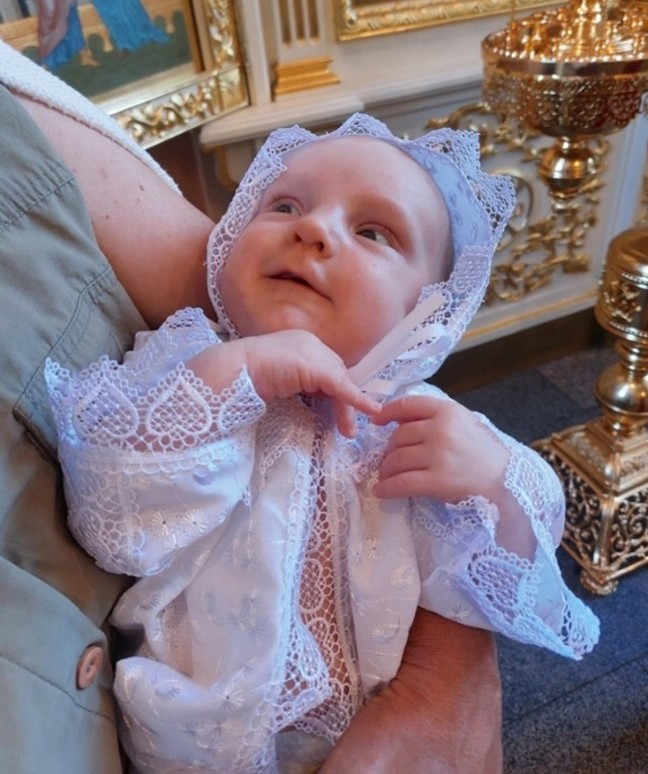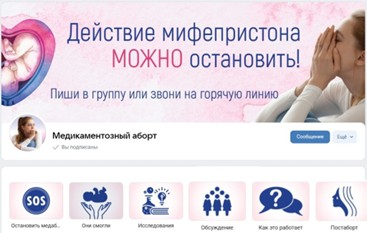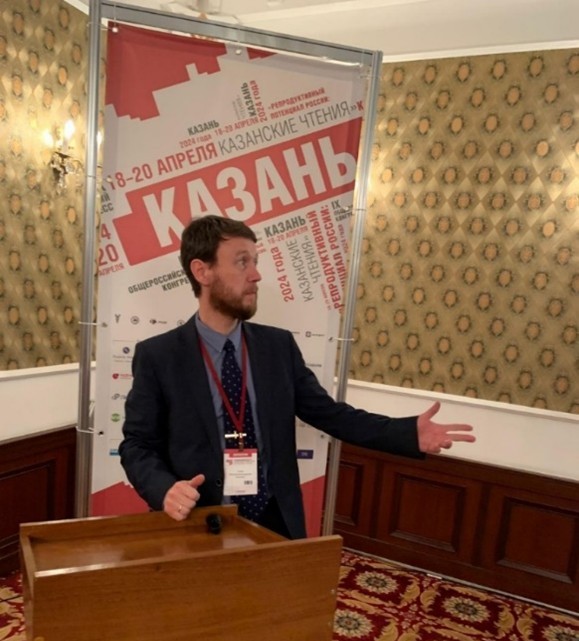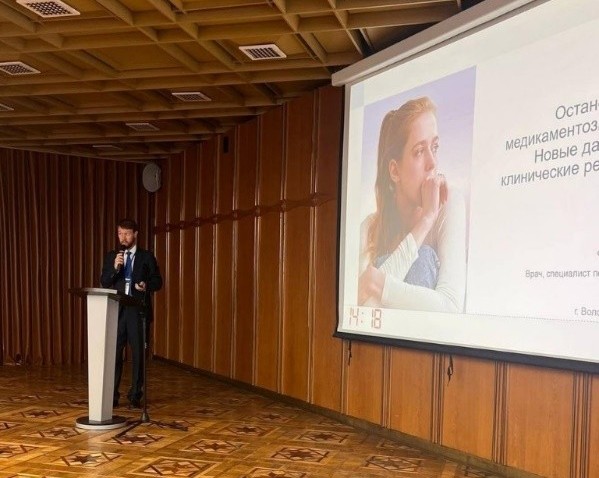Saving preborn lives in Russia
Nine years ago, Russian physician Alexey Fokin received a call regarding a woman who had taken the abortion pill and felt immediate regret. She wanted to continue her pregnancy.
Soon after, another woman asked him for the same guidance.
In an effort to assist these women, Fokin found the Abortion Pill Reversal website and the studies that revealed effectiveness and safety of Abortion Pill Reversal.
Quickly, Fokin realized these cases were not unique.
“I have realized that this is not a rare situation,” he said. “And the APR technique can be helpful for many other women and potentially it can save many babies.”
Fokin contacted Dr. George Delgado, the founder of the Abortion Pill Rescue Network (APRN), who shared about the work of the APRN and how to help women requesting reversal.
“I was very happy when I received the protocol,” Fokin said. “We translated the progesterone protocol into Russian and adapted it to local progesterone formulations.”
[Click here to subscribe to Pregnancy Help News!]
Abortion Pill Reversal works by using a bioidentical form of progesterone, the natural hormone in a woman’s body that sustains pregnancy, to counteract the effects of mifepristone, the first of two drugs in a chemical abortion, to effectively reverse a chemical abortion. Mifepristone reduces progesterone to unsafe levels in pregnancy and APR works to restore that hormone to sustain the pregnancy.
The American Association of Pro-Life Obstetricians and Gynecologists (AAPLOG) states that APR is “based on basic pharmacokinetic principles and the existing literature shows that it is safe and effective.”
Women provided the APR protocol after starting a chemical abortion have nearly a 70% chance of continuing their pregnancies. Data from the APRN shows that more than 6,000 lives have been saved through the APR protocol.

To more widely share the hope of APR, Fokin’s team established The Peredumala.ru project and began sharing about APR on YouTube in 2018. The first video was in Russian and was titled, “How to stop medical abortion.”
“The video had many views, and we understood that the number of women who want to reverse mifepristone is significant,” Fokin said.
Soon, they launched the APR website for peredumala.ru which is available in nine languages.
“We are extremely grateful to Dr. Delgado and all the abortion pill reversal team,” Fokin said.
Dr. Fokin’s team also shares APR information on Instagram and Facebook.
As more and more women contacted Fokin and his colleagues, it became clear that many in Russia were experiencing deep remorse after starting their abortions. The potential became obvious that thousands of women might want to back up time, effectively reverse the effects of mifepristone, and save the lives of their children.
One woman who shared her APR story in 2019 continues to be happy with her choice for life.
“The saved boy is almost 5 years old. He grows normally in a big and happy family, said Fokin. “The mother is extremely happy that she was able to reverse the mifepristone and saved her son.”
Fokin, a married father of five children, along with his team, continue to save lives and spare women the hardship of abortion. They assist those who are making pregnancy choices, those who suffer from psychological effects after an abortion, and those seeking Abortion Pill Reversal.

Russia’s long history of abortion
Soviet Russia became the first country in the world to legalize abortion in 1920. However, the birthrate quickly began to decline, and abortion was once again banned in order to halt the population downfall. At that time, Josef Stalin said giving birth was “not a private affair but one of great social importance.”
Fokin confirms abortion drugs today are inexpensive and readily available across the nation. The incidence of abortion in Russia is the world’s highest.
In 2020, Russia had 314 abortions to 1,000 live births, compared with 188 in the European Union, according to the World Health Organization.
Sadly, it is not uncommon for some women to have multiple abortions.
The number of reported abortions in Russia fell from 4.1 million in 1990 to 517,000 in 2021. However, Fokin confirms abortion is widely available even over the counter in some parts of his country. Just as in other nations, self-administered abortions are difficult to track.
Amid the war in Ukraine and the resulting economic instability, Russians in 2022 purchased 60% more medical abortion drugs than in the previous year. Astonishingly, a total of 1.4 million chemical abortion drug packages were sold.
In the last 30 years, Russia’s population has decreased by five million – a declining trend observed in several other western nations too. Russia continues to record about 1.5 births per woman, which is well below the rate of 2.1 needed to maintain the population.
Vladimir Putin’s efforts to increase the low fertility rate have not been successful, even as more state benefits for mothers have become available. The Ukraine war and the casualty figures have increased these population concerns.
Efforts to save lives across Russia increase
Fokin shares that the Russian government is in favor of Abortion Pill Reversal as a choice for all women having regret after starting a chemical abortion.
“In June 2024 APR was included in official clinical recommendations of national ACOG and approved by Ministry of Health of Russia,” he said.
Fokin also joyfully shares that the APR program in Russia continues to grow step-by-step.

Fokin works to raise awareness of APR with the medical community.
“I have presented APR to the three main national OB-GYB Congresses,” he said. “However, we still see that many local Ob-Gyns don’t know about APR, and we should continue our promotional activities.”

The wide availability of chemical abortion continues to increase abortion numbers and the need for APR, he added.
“Chemical abortion is easily available in Russia,” Fokin said. “In Kazakhstan mifepristone is even available in pharmacies without prescription. That’s why we receive many calls from all Russia and surrounding countries” (Belarus, Ukraine, Kazakhstan, Uzbekistan, Kyrgyzstan, Armenia etc.).
Fokin’s team has collected APR data since implementing APR across Russia and hope to share what they have learned in a scientific journal article in 2025.

The Kremlin has now reintroduced the Soviet-era Mother Heroine program with a cash award of $16,500 for women who have 10 or more children. And the Russian Orthodox Church is now advocating to reduce the timeframe for legal abortion to eight weeks.
Women for Life, a Russian helpline for pregnant women which is in part funded by the government of Russia, encourages life choices and has come under fire from radical abortion groups.
The Russian government is reducing access to abortion drugs through 2030. The Russian Ministry of Health has expressed concern about the risk of prescribing these drugs without medical oversight. This can lead to a greater risk of complications, especially in cases of ectopic pregnancy. In a decree, the Health Ministry has added mifepristone and misoprostol, the second drug in a chemical abortion, to a list of medications that can only be distributed by licensed agencies.
Fokin is enthusiastic about the future of APR in Russia.
“Our team receives a lot of positive feedback from mothers of saved babies,” he said. “They send us pictures almost every week.”
“We also are very happy that APR and our team (with God’s help) are helping mothers to correct the huge mistake in life,” Fokin said.
Tweet This: “Our team receives a lot of positive feedback from mothers of saved babies” - APR physician in Russia
Editor's note: Heartbeat International manages the Abortion Pill Rescue® Network (APRN) and Pregnancy Help News. Heartbeat is currently the subject of two lawsuits brought by state AGs concerning sharing information about Abortion Pill Reversal.







